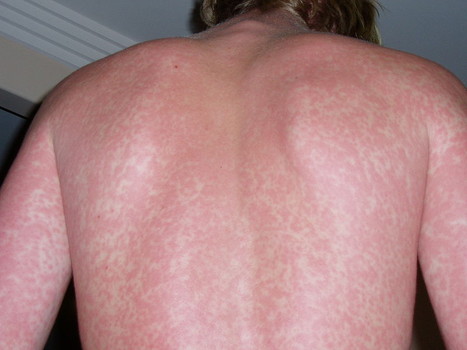<p style="text-align: justify">While it may appear frightening, dry itchy skin on the penis actually affects millions of men everyday and it is not something to be concerned about transmitting to your partner. Eczema or psoriasis on the penis causes scaly-like skin on the penis, that can be an alarming discovery for men and often times, can become confused with other issues such as sexually transmitted disease.</p>
<p style="text-align: justify">It can be overwhelming to have a flare-up on the most private and sexual part of a man&#8217;s body; however, there are some common things that can cause flare-ups and several means of addressing this problem.</p>
<h2 style="text-align: justify"><strong>What&#8217;s Going On</strong></h2>
<p style="text-align: justify">To really understand how this dry, itchy skin on the penis developed, you need to understand the potential causes of eczema and psoriasis and how-to-treat them appropriately. Both eczema and psoriasis are autoimmune disorders, so if you suspect that you are dealing with one of these disorders, be sure to speak with your physician for treatment options.</p>
<p style="text-align: justify">Although a definitive, scientific attribution to the cause of eczema remains unknown, many professionals speculate that it occurs as a result of environmental or genetic factors. However, some have found that exposure to certain foods and products can result in a flare-up of eczema.</p>
<p style="text-align: justify">Psoriasis is another medical condition which causes intensely dry, itchy skin and it can appear anywhere on the body, including genitals. The appearance of psoriasis on the penis can present itself with dry, itchy and often, raised patches of skin. Psoriasis also produces flakes that resemble a silver-grayish color.</p>
<p style="text-align: justify">Follow these guidelines to help with avoiding flare-ups and the unsightly appearance that comes when this affects your penis.</p>
<h2 style="text-align: justify"><strong>Eczema and Psoriasis on Penis and the Use of Condoms</strong></h2>
<p style="text-align: justify">Have you heard of flavored condoms causing yeast infections in women in the past? A similar mechanism can cause a flare-up of eczema for men. If you think you may be experiencing eczema or psoriasis on your genitalia, avoid the use of these condoms.</p>
<p style="text-align: justify">On the other hand, condom use can be one of the most effective methods of preventing eczema flares on your penis. During intercourse, the amount of friction on the skin without a barrier, can result in tiny tears in your skin. Though they are typically painless, they trigger eczema patches to form.</p>
<p style="text-align: justify">When selecting condoms, it may be best to touch the condom with your hands and assess if a reaction appears to begin occurring: does your skin begin to heat, become red, or swell? Latex is a very common allergy. It is best to use condoms that are made from polyurethane or sheepskin in place of traditional latex. They tend to cost a little more but are worth the extra cents to avoid dealing with outbreaks.</p>
<h2 style="text-align: justify"><strong>Lubrication for Eczema or Psoriasis on Penis</strong></h2>
<p style="text-align: justify">If you do not use a condom before engaging in intercourse, apply a liberal amount of lubrication to your penis to prevent the chaffing associated with the friction. Manufacturers have created many hypoallergenic, flavorless lubrications.</p>
<p style="text-align: justify">Bear in mind that although water-based lubricants will wash off easily, they often dry out quickly and become overly sticky, which can further exacerbate your flare-up. Speak with your physician about what lubrication works best in triggering your condition.</p>
<h2 style="text-align: justify"><strong>If at All Possible, Avoid Sexual Activity</strong></h2>
<p style="text-align: justify">In an ideal world, you would completely stop touching and engaging in sexual activities when you experience a flare-up as it can be uncomfortable, frightening and even painful. In reality, you need to know what you can do to address the dry skin patches on your penis. However, understand that the least amount of scratching and friction applied to the area will promote healing.</p>
<p style="text-align: justify">It is best to allow for the skin barrier to heal before you engage in sexual activity. Allowing your skin barrier’s lipids to rejuvenate and the for the dry skin to become smooth again, will help to prevent further skin irritation associated with sexual activity, condoms and lubrication.</p>
<p style="text-align: justify">+Dr.Lee Eberting has developed a sensitive skin care product line which she blogs about regularly at cherlyleemd.com</p>

What Are These Dry Skin Patches On My Man Parts; What Can I Do About Them?
